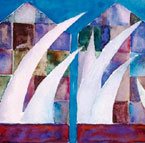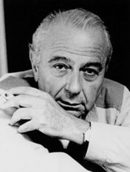Διάλεξη με θέμα «Η περίοδος της βενετοκρατίας στην Κρήτη» έδωσε η προϊσταμένη του Γραφείου Τύπου Βαρσοβίας, Μαρία Μονδέλου, στο Πανεπιστήμιο του Πόζναν στις 22 Φεβρουαρίου.
Η διάλεξη πραγματοποιήθηκε ύστερα από πρόσκληση του Τμήματος Νεοελληνικής Φιλολογίας του Πανεπιστημίου του Poznan “Adam Mickiewicz”, με πρωτοβουλία τoυ λέκτορα Νεοελληνικής Φιλολογίας, Χρήστου Μπιντούδη.
Στο πλαίσιο διαλέξεων της Μ. Μονδέλου σε πολωνικά πανεπιστήμια στη διάρκεια του εκάστοτε ακαδημαϊκού έτους από το 2009 και εξής, η συγκεκριμένη ομιλία απευθυνόταν σε μέλη του διδακτικού και επιστημονικού προσωπικού, φοιτητές και μεταπτυχιακούς φοιτητές του Τμήματος Νεοελληνικής Γλώσσας και Λογοτεχνίας του Πανεπιστημίου του Πόζναν.
 Ως προς το περιεχόμενο της διάλεξης, στο πρώτο μέρος παρουσιάστηκαν τα σημαντικότερα ορόσημα των μακραίωνων ελληνο-βενετικών σχέσεων, ποικίλες όψεις της ιστορίας της βενετοκρατίας στον ελληνικό χώρο, καθώς και τα χαρακτηριστικά της βενετικής κυριαρχίας, ενώ επισημάνθηκαν συμπεράσματα των σύγχρονων ερευνών, οι οποίες αποδεικνύουν την ύπαρξη ενός κοινού ελληνο-βενετικού πολιτισμού, καρπού της δυτικής και της βυζαντινής παράδοσης.
Ως προς το περιεχόμενο της διάλεξης, στο πρώτο μέρος παρουσιάστηκαν τα σημαντικότερα ορόσημα των μακραίωνων ελληνο-βενετικών σχέσεων, ποικίλες όψεις της ιστορίας της βενετοκρατίας στον ελληνικό χώρο, καθώς και τα χαρακτηριστικά της βενετικής κυριαρχίας, ενώ επισημάνθηκαν συμπεράσματα των σύγχρονων ερευνών, οι οποίες αποδεικνύουν την ύπαρξη ενός κοινού ελληνο-βενετικού πολιτισμού, καρπού της δυτικής και της βυζαντινής παράδοσης.
Αναλύθηκαν τα κύρια γνωρίσματα της ιστορίας μίας από τις σημαντικότερες βενετικές κτήσεις, της Κρήτης, καθώς και τα χαρακτηριστικά των τεσσάρων μεγαλύτερων πόλεων της εποχής (Χάνδακας, Χανιά, Ρέθυμνο, Σητεία). Ιδιαίτερη αναφορά έγινε στη λεγόμενη «Κρητική Αναγέννηση» και σε επιτεύγματα του βενετο-κρητικού πολιτισμού της ύστερης περιόδου (με ενδεικτικά παραδείγματα από την λογοτεχνία, την ποίηση, την ζωγραφική, το θέατρο, την αρχιτεκτονική κλπ.).
 Στη συνέχεια, παρουσιάστηκαν συνοπτικά τα κυριότερα χαρακτηριστικά της βενετικής κυριαρχίας στη Σητεία (πόλη και ύπαιθρος), κυρίως κατά την ύστερη περίοδο της βενετοκρατίας (16ος και 17ος αι.), οι θεσμοί που εισήγαγε η Βενετία στην πόλη, η κοινωνική διαστρωμάτωση της πόλης και της υπαίθρου, οι κοινωνικές σχέσεις, τα χαρακτηριστικά της οικονομίας, η μορφή της πόλης και ο τρόπος ζωής των κατοίκων. Ειδική μνεία έγινε σε ιστορικά στοιχεία για τον καταγόμενο από την Σητεία Βιτσέντζο Κορνάρο, τον πιθανολογούμενο ως ποιητή του Ερωτόκριτου, έργο το οποίο αποτελεί αντικείμενο σπουδών των φοιτητών του Τμήματος Νεοελληνικής Φιλολογίας.
Στη συνέχεια, παρουσιάστηκαν συνοπτικά τα κυριότερα χαρακτηριστικά της βενετικής κυριαρχίας στη Σητεία (πόλη και ύπαιθρος), κυρίως κατά την ύστερη περίοδο της βενετοκρατίας (16ος και 17ος αι.), οι θεσμοί που εισήγαγε η Βενετία στην πόλη, η κοινωνική διαστρωμάτωση της πόλης και της υπαίθρου, οι κοινωνικές σχέσεις, τα χαρακτηριστικά της οικονομίας, η μορφή της πόλης και ο τρόπος ζωής των κατοίκων. Ειδική μνεία έγινε σε ιστορικά στοιχεία για τον καταγόμενο από την Σητεία Βιτσέντζο Κορνάρο, τον πιθανολογούμενο ως ποιητή του Ερωτόκριτου, έργο το οποίο αποτελεί αντικείμενο σπουδών των φοιτητών του Τμήματος Νεοελληνικής Φιλολογίας.
Παρουσιάστηκαν, επίσης, στους φοιτητές αντίγραφα ανέκδοτων χειρογράφων της εποχής και αναγνώστηκε τμήμα του περιεχομένου τους, ενώ ενημερώθηκαν και για την δράση του μοναδικού ερευνητικού ιδρύματος της Ελλάδας στο εξωτερικό, του Ελληνικού Ινστιτούτου Βυζαντινών και Μεταβυζαντινών Σπουδών Βενετίας, όπου η Μ. Μονδέλου υπήρξε υπότροφος-ερευνήτρια.
Filed under: Archaeology, Art, Bilateral relations GREECE - POLAND, Book, Crete, culture, Customs, Cyprus, Economy, Education, European Union, Greece, Greeks Abroad, history, Immigration, Infrastucture, International Relations, Literature, Music, Nature, News in Greek, Poland, Politics, Religion, Science, theater, tourism, Turkey | Tagged: Adam Mickiewicz, Byzantium, Candia, Canea, Crete, culture, Current Affairs, director, dominion, Europe, Greek, history, in, πρόσκληση, προσωπικό, προϊσταμένη, πόλεις, πόλη, παράδοση, πανεπιστήμια, περίοδος, ποίηση, πολωνικά, πολιτισμός, συμπεράσματα, σχέσεις, υπότροφος-ερευνήτρια, φοιτητές, χαρακτηριστικά, χειρόγραφα, Ίδρυμα, ύπαιθρος, Αρχιτεκτονική, Βυζάντιο, Βυζαντινών, Βενετία, Βενετίας, Βενετοκρατία, Βιτσέντζος, Γραφείο Τύπου Βαρσοβίας, Ερωτόκριτος, Ελλάδα, Ελληνικό, Ελληνικό Ινστιτούτο Βενετίας, Θέατρο, Ινστιτούτο, Κρήτη, Κρητική Αναγέννηση, Κορνάρος, Λογοτεχνίας, Μαρία Μονδέλου, Μεταβυζαντινών, Νεοελληνικής, Πόζναν, Πανεπιστήμιο, Ρέθυμνο, Σπουδών, Σπουδές, Σητεία, Τμήμα, Φιλολογίας, Χρήστος Μπιντούδης, Χάνδακας, Χανιά, έρευνες, ανέκδοτα, βυζαντινή, βενετο-κρητικός, βενετοκρατούμενη, δράση, δυτική, διάλεξη, διαστρωμάτωση, διδακτικό, επιστημονικό, ερευνητικό, ελληνο-βενετικός, ελληνο-βενετικές, ζωγραφική, θεσμοί, ιστορία, κτήσεις, κυριαρχία, κάτοικοι, και, κοινωνικές, κοινωνική, λέκτορας, λογοτεχνία, μεταπτυχιακοί, ορόσημα, οικονομία, ομιλία, Lecture, Maria Mondelou, News in Greek, of, Poland, Poznań, Press Office, Rettimo, Science, Sitia, University, Venetian, Venice, Warsaw | Comments Off on Διάλεξη της προϊσταμένης του Γραφείου Τύπου στο Πανεπιστήμιο του Πόζναν για την βενετοκρατούμενη Κρήτη (22/2/2013)










































































































